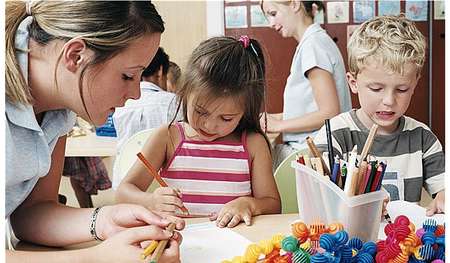$1.7 billion per year by the taxpayer on childcare – and other astonishing facts
 Here’s what you need to know about childcare
Here’s what you need to know about childcare
Stuff co.nz 15 October 2016
Family First Comment: I stand corrected. I’ve been telling people that the taxpayer spends $1.2 billion every year to fund child care (which shocks most people). It’s worse than that! It’s $1.7 billion!! And how much do families who have a full-time parent at home receive? $0.
Yes – the state discriminates against families who want a full-time parent for babies and toddlers and children.
#fundingshouldgodirecttothefamily
WHAT ARE THE CHILDCARE OPTIONS IN NZ?
New Zealand has more than 4500 licensed Early Childhood Education providers across the country, which employ more than 18,800 qualified teachers. Of those providers, 53.6 per cent are community-owned, or public, while 46.4 per cent are privately owned. All are licensed by the Ministry of Education.
The average number of hours Kiwi kids spend in early childhood education (ECE) is 20.7 hours a week. There are more than 200,000 kids enrolled across the country.
ECE comes in a range of forms, with 55 per cent of providers coming under the umbrella of education and care – that includes daycares and preschools.
Meanwhile, 14 per cent are kindergartens, 11 per cent are home-based, 10 per cent are Te Kohanga Reo and 9 per cent are playcentres (led by parents rather than teachers).
A total of 3181 providers are led by teachers, 887 are led by parents or whanau and 476 are home-based.
HOW MUCH DOES IT COST?
The range of costs vary greatly. While some families do not have to pay anything at all for their children to be put into childcare, other are looking at fees. A Government website says charges may vary but based on 2015 figures, the average charge for a kindergarten is $5-6 an hour, playcentres charge up to $50 for a 10-week term and home-based care costs were about $4-6 an hour. Meanwhile, a 2014 study carried out by BNZ and Plunket found the average Kiwi parent spent about $11,500 a year on childcare.
In 2012 the government scrapped childcare tax credits, saying they were no longer fit-for-purpose. With the introduction of 20 “free” hours childcare and Working For Families, the tax rebate was no longer needed, Peter Dunne said in 2012.
HOW DOES GOVERNMENT FUNDING WORK?
The Government was forecast to spend $1.7 billion on early childhood education funding for the 2016 financial year.
The Government has a universal subsidy for every child that attends any Ministry of Education-approved childcare service. On top of that, there’s a targeted subsidy for children aged 3-5, known as 20 free hours. Every child is eligible for this, no matter the parents’ income or situation. The name can be misleading, as the childcare providers can charge extra fees, meaning some parents have to top up the subsidy with their own money.
Work and Income subsidies are also available for low-income families, parents who are studying or work shift work, among other criteria.
The Green Party has proposed extending the 20 subsidised hours to include 2-year-olds.
HOW DO WE COMPARE TO OTHER COUNTRIES?
A new OECD report has found New Zealand is one of the most expensive countries to raise a preschooler. New Zealand was only behind the UK in terms of childcare costs, with two-parent families spending 29 per cent of their incomes on their preschoolers’ daycare, according to the report.
READ MORE: http://www.stuff.co.nz/national/education/85336252/Heres-what-you-need-to-know-about-childcare?cid=app-iPhone







